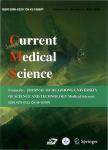Impact of Frequency of Intercourse on Erectile Dysfunction: A Cross-sectional Study in Wuhan, China
Impact of Frequency of Intercourse on Erectile Dysfunction: A Cross-sectional Study in Wuhan, China作者机构:Urology and Andrology Research Center Zhongnan Hospital Wuhan University School of Nursing Tianjin Medical University
出 版 物:《Journal of Huazhong University of Science and Technology(Medical Sciences)》 (华中科技大学学报(医学英德文版))
年 卷 期:2012年第32卷第3期
页 面:396-399页
核心收录:
学科分类:1002[医学-临床医学] 100210[医学-外科学(含:普外、骨外、泌尿外、胸心外、神外、整形、烧伤、野战外)] 10[医学]
主 题:frequency intercourse erectile dysfunction outpatients cross-sectional study
摘 要:This study was aimed to investigate the influence of coital frequency and masturbation on erectile dysfunction (ED) in Chinese patients. A total of 332 male outpatients with or without ED and volunteers were recruited from Zhongnan Hospital, Wuhan University, China. ED was assessed by using the five-item International Index of Erectile Function scale and the frequency of intercourse by patients' self-report. After adjusting for lifestyle factors and diseases-related factors, the analyses showed that coital and masturbation in a certain frequency tended to decrease the risk of ED. Men reporting intercourse once a week had lower risk of ED than those did less than once a week, with age, hyperlipidemia, hy-pertension, diabetes, body mass index, smoking, and drinking as covariates (P=0.67, adjusted odds ratio [OR] = 0.84; 95% confidence interval [CI]: 0.37-1.88). For those reporting coital frequency two times per week and three or more times per week, there were 63% (adjusted OR = 0.37; 95% CI: 0.18-0.77) and 85% (adjusted OR = 0.15; 95% CI: 0.07-0.35) lower risk of ED than those reporting intercourse frequency less than once per week, respectively (P〈0.05). Results indicated that maintaining a regular frequency of intercourse can reduce the risk of ED for males aged among 30 to 75 years.



